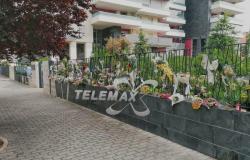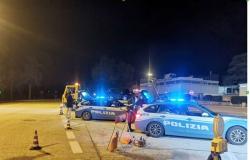by Leonardo Malà
This is a pro Ferdinandi article, a necessary premise. When I heard her talk about potholes, in one of her first debates, I thought of an electoral strategy. And many will have done so after her considerations on the (virtual) Nodino. Then I realized that she had simply “listened” to what her real profession, which is not a restaurateur, trained her to do. And if the citizens’ problem is potholes, the potholes must be taken care of. Perhaps making it clear, over time, that there are even deeper holes to plug in our lives.
Despite the thirty-year tirades of Massimo Cacciari, a philosopher appreciated by Ferdinandi’s mother and probably by the candidate herself, he will certainly not be a political leader who will find the definitive synthesis for the thousand souls of a left which out of ten voters has ten different visions, perhaps not excessively distant , but hardly superimposable. The new directors of such a changed world, which in forty years (I’m talking about my profession, the journalist) has gone from Gutenberg’s lead to artificial intelligence, really concern philosophy more than politics, which is its contamination. Revolutionary thoughts, bordering on the visionary, are needed to understand a new hyper-connected and mixed humanity, subject to increasingly stronger pressures, while social and media push everyone towards judgment and condemnation rather than mediation: if increasing pressure is exerted on a body the more and more rigid it reaches the point of breaking. Physics says it and the thousand ongoing conflicts reiterate it. There really is something to worry about.
What can a politician operating at a local or national level do? Ferdinandi’s electoral campaign demonstrated all the potential that a capacity for listening and conscious understanding can unleash. Combining human sensitivity and technical ability in decoding the needs of citizens, so overwhelmed by the load of commitments that they no longer know how to recognize them (the needs). In just a few days, a population in eternal self-conflict, like the left, has found a common denominator that it has been waiting for for a long time and which evidently had never been offered to it. It is not a question of empty formulas, of the overused populism that reproduces collective frustrations through the megaphone, but of a more patient listening, of a deeper connection with the many urgencies, virtues that become pre-eminent compared to the so-called “technical skills”. These also count, of course, but there is no doubt that, in addition to ordinary administration, our society suffers from enormous psychic fragilities which invalidate from the start any form of collective life, manifesting itself in arguments on the street, between condominiums, between parents at school and in all relationships, including the workplace: just observe the relaxed faces of those who cross the limits of retirement, now out of a toxic environment like the office, a transition that only a few years ago was experienced with anguish. We have changed, and a lot, but we don’t seem to want to notice it, preferring to freeze the present.
There is more. Vittoria Ferdinandi has made a clear break with the past, it represents an investment in the future that should entice the entrepreneurial class, too often barricaded behind incentives, bonuses, tax discounts, unaccustomed to risk, even minimal. With Ferdinandi the reviled politician took risks and decided: just look at the televised clash with the other left-wing candidate, Leonardo Caponi, not so much on sexism but on the privileges and annuities of an old ruling class light years away from the conscription of young graduates who we have endured imposing study plans, limited number barriers, double jobs up to miserable rider contracts. Many of them are the children of a social class for which a degree was worth great sacrifices but who, without recommendations, saw the social elevator blocked on the ground floor. Boys betrayed by everyone, including those who longed for the working class while in the changing rooms of the workshops they talked more and more about pussy and football rather than politics.
The break with the past, including the leaders of the local Democratic Party, reduces to the level of slander the chant of the more social right, of “then you?”, of the “radical chic” and of the alleged Stalinist nostalgia: among the center-left candidates there is the Undersecretary for the Economy of the Draghi government, Alessandra Sartore, there are authoritative professionals who confirm the heterogeneous, anything but “group-based” character of the coalition. Vittoria Ferdinandi’s repeated appearances in the national press demonstrate her ability to emerge at a national level and the innovative force that an affirmation by her could determine in the highest structures of the left. Ferdinandi breaks with the past, Margherita Scoccia, also a great worker, is its slavish continuation, probably a little more faded, not so much due to inability but because she is a direct emanation of whoever nominated her, therefore less autonomous.
The nostalgias of Ferdinandi and those who support her concern, if anything, the innovative and experimental left of the 70s, when new paths were explored and we allowed ourselves to be contaminated by emerging cultures, with the small associated inconveniences: remember the arrows of the right-thinking people against the sacks hair of Umbria Jazz? Now everyone glorifies this event, which has established itself precisely for its innovative character, supported by a policy that does not follow the moods of social media, a trait that should be recovered when the stainless Carlo Pagnotta decides to separate from his happy creation.
The post-vote Perugia is being decided today and we all know what is at stake: a Perugia that turns the page and becomes a national case, that experiments with a new language of politics, with some unknowns mitigated by the support of important professionals and on the wings of a newfound enthusiasm. Otherwise, a Perugia that continues along the path of these ten years, of conscientious reporting, of tasks carried out on paper rather than concretely, of live and let live, that turns a blind eye to the cars stopped in Piazza IV Novembre (a bit like receiving the guests with the clothesline in the living room), who greets, smiles politely and moves on. And with so many of us wondering why there is always more life in other cities than here.






